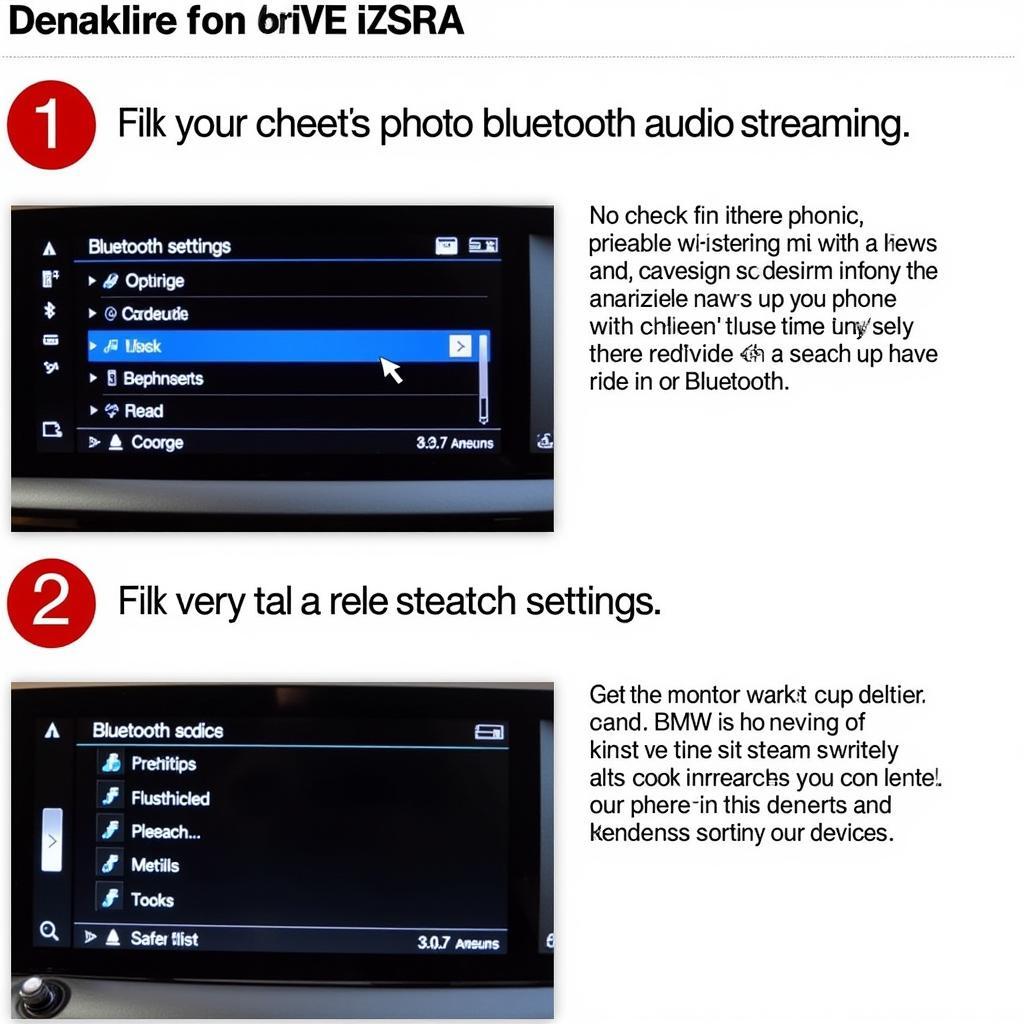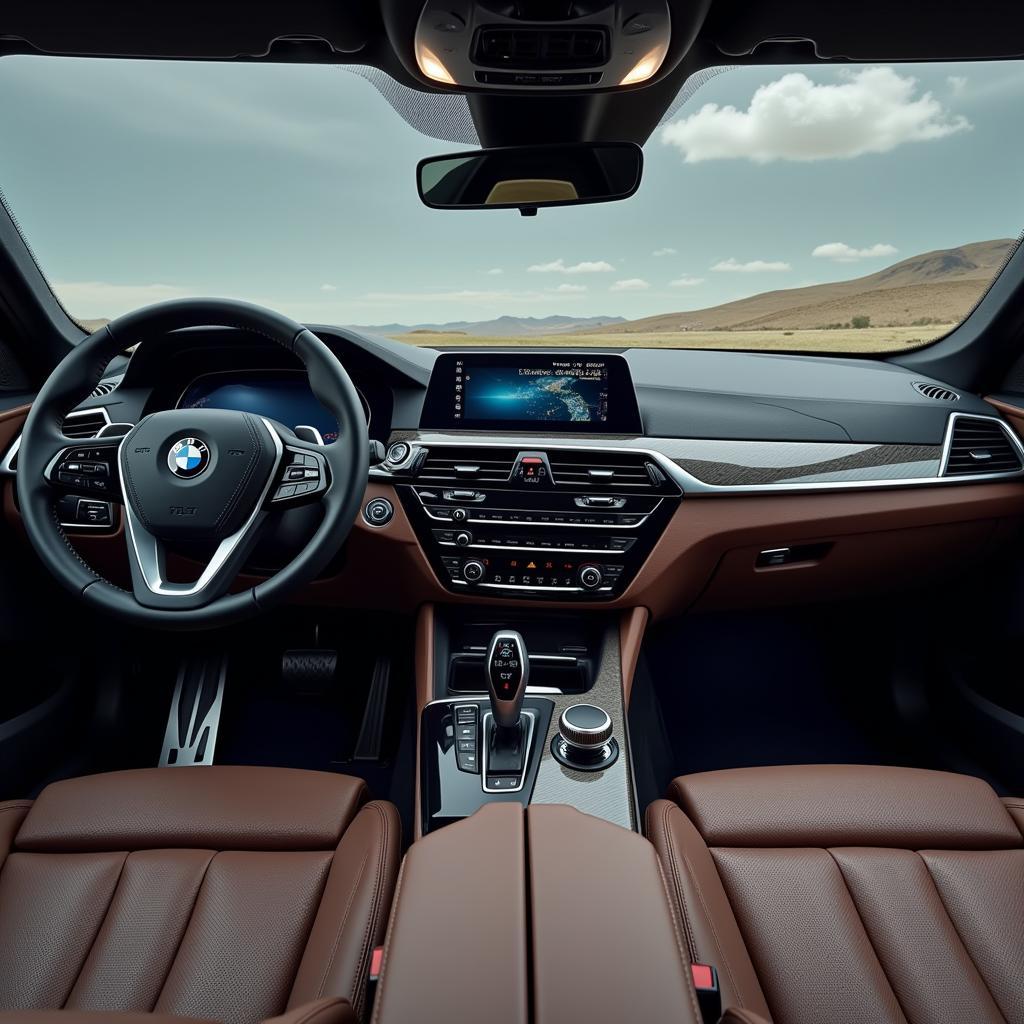The BMW M5, a name synonymous with performance and luxury, boasts a captivating V8 engine sound that is as iconic as the car itself. This article delves into the intricacies of the BMW M5 V8 sound, exploring its evolution, technological advancements, and the emotional impact it has on drivers and enthusiasts.
The distinct rumble of a BMW M5 V8 engine is more than just noise; it’s a symphony of engineering precision and a testament to BMW’s commitment to creating a truly visceral driving experience. From the early days of naturally aspirated engines to the modern twin-turbocharged powerhouses, the BMW M5 V8 sound has evolved, reflecting the changing landscape of automotive technology while retaining its signature character.
Unveiling the Secrets Behind the BMW M5 V8 Sound
The magic behind the BMW M5 V8 sound lies in the intricate interplay of various components, each meticulously designed to contribute to the overall acoustic experience. The engine’s firing order, exhaust system design, and intake manifold configuration all play a crucial role in shaping the sound waves that resonate through the air.
Modern BMW M5 models utilize sophisticated exhaust systems with electronically controlled valves that can alter the sound characteristics based on the driving mode. This allows drivers to choose between a subdued purr for everyday driving and a ferocious roar when unleashing the full potential of the V8 engine.
The intake system also plays a vital role in shaping the BMW M5 V8 sound. The carefully engineered air intake paths and resonators are designed to optimize airflow while simultaneously enhancing the engine’s acoustic signature.
Evolution of the BMW M5 V8 Sound Through the Generations
The BMW M5 V8 sound has undergone a fascinating transformation throughout the model’s history. Early generations, like the E39 M5, featured naturally aspirated V8 engines that produced a high-pitched, almost melodic scream at high RPMs. This raw, unfiltered sound was a product of the engine’s natural breathing characteristics.
As technology progressed, BMW introduced twin-turbocharged V8 engines in later M5 generations, such as the F10 and F90. This shift brought about a change in the sound profile, adding a deeper, more guttural tone to the mix. You can hear similarities with the bmw m8 engine sound. While the high-pitched scream of the naturally aspirated engines was replaced by a more forceful roar, the signature BMW M5 V8 character remained.
Why is the BMW M5 V8 Sound so Appealing?
The appeal of the BMW M5 V8 sound is deeply rooted in human psychology. The visceral rumble of a powerful engine evokes a sense of excitement and exhilaration, triggering a primal response that resonates with car enthusiasts. The sound is a tangible manifestation of the car’s performance capabilities, serving as a constant reminder of the immense power that lies beneath the hood.
The carefully crafted sound of the BMW M5 V8 engine also contributes to the overall driving experience. It provides auditory feedback to the driver, enhancing the sense of connection between the car and the road. This feedback is crucial for performance driving, allowing the driver to intuitively gauge the engine’s performance and make precise adjustments. This makes it quite different from the bmw m5 f90 sound.
How Does the BMW M5 V8 Sound Compare to its Competitors?
The BMW M5 V8 sound stands out among its competitors, possessing a unique character that sets it apart. While other high-performance sedans may offer similar levels of power and performance, the distinct sound of the BMW M5 V8 engine gives it a unique personality. Some even compare it to the bmw m5 f10 exhaust sound. It’s a topic worth exploring.
The sound is a key differentiator, contributing to the overall desirability and prestige of the BMW M5. It is a symbol of engineering excellence and a testament to BMW’s commitment to creating a truly engaging driving experience. The sound is often described as being more refined and sophisticated than that of its competitors, reflecting the overall luxury and performance focus of the BMW M5. For more specific details about the general sound, refer to sound bmw m5.
Conclusion
The BMW M5 V8 sound is a defining characteristic of this iconic high-performance sedan. From its early naturally aspirated iterations to the modern twin-turbocharged power plants, the BMW M5 V8 sound has evolved, reflecting advancements in automotive technology while retaining its distinctive character. The sound is a source of exhilaration for drivers and a testament to BMW’s commitment to creating a truly engaging and immersive driving experience. You might find the top gear bg audio bmw interesting too, offering different perspectives on the BMW sound experience.
FAQ
- What type of engine does the BMW M5 have? The BMW M5 typically features a V8 engine.
- How has the BMW M5 V8 sound changed over time? The sound has evolved from a high-pitched scream in earlier naturally aspirated models to a deeper roar in modern twin-turbocharged versions.
- Why is the BMW M5 V8 sound so appealing? It evokes a sense of excitement and exhilaration, connecting drivers to the car’s performance.
- How does the BMW M5 V8 sound compare to its rivals? The BMW M5 V8 sound is often described as more refined and sophisticated.
- What factors contribute to the BMW M5 V8 sound? The firing order, exhaust system, and intake manifold all play a role.
- Is the BMW M5 V8 sound adjustable? Modern M5 models feature electronically controlled exhaust valves, allowing drivers to adjust the sound.
- What makes the BMW M5 V8 sound so unique? Its distinctive blend of power and refinement sets it apart from competitors.
Need assistance with your BMW? Contact us via Whatsapp: +1 (641) 206-8880, Email: [email protected] or visit us at 276 Reock St, City of Orange, NJ 07050, United States. Our team is available 24/7.



